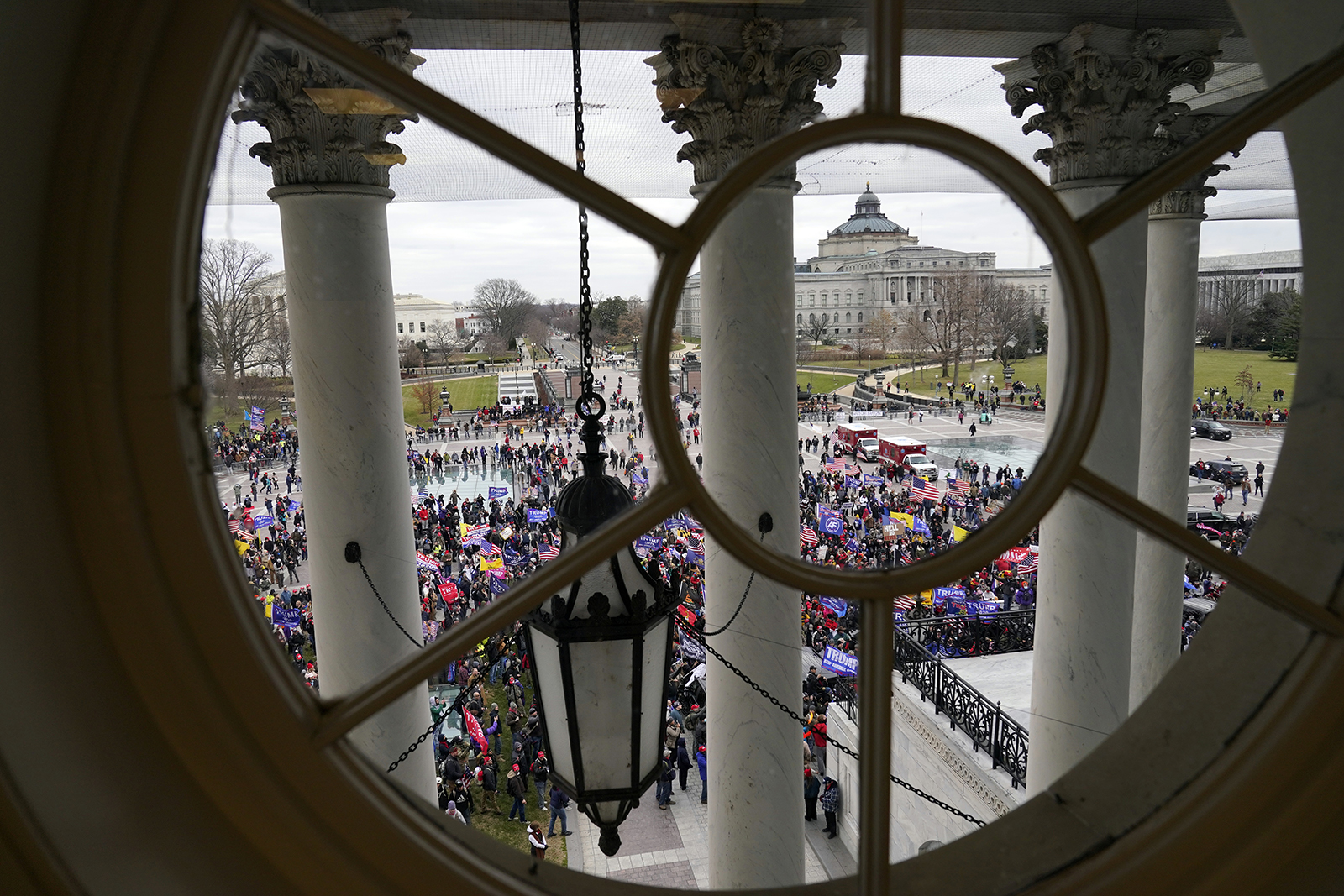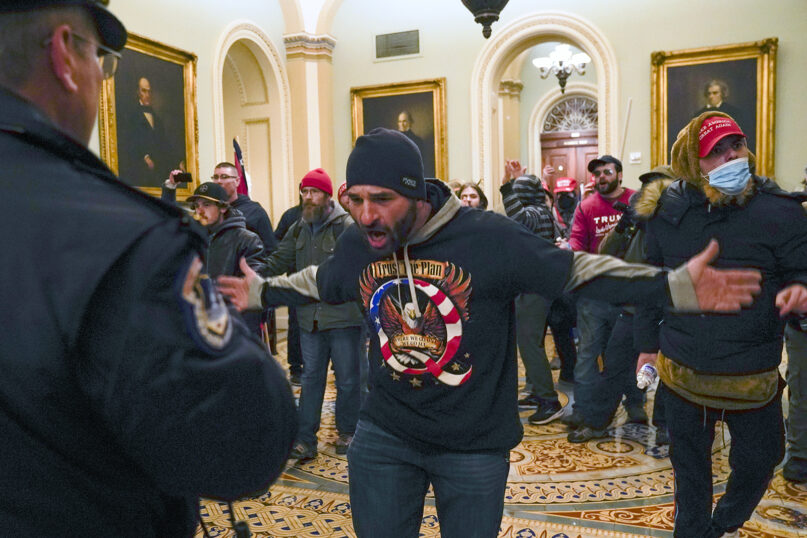(RNS) — When I first heard that Trump supporters were gathering at the U.S. Capitol, I dismissed it as insignificant. “There have been countless protests in Washington over the years,” I told myself. “And besides, we’ve been hearing about these gatherings for days now.”
I expected law enforcement officers to be prepared and that any potential for violence or unrest would be quelled swiftly.
An hour later I found myself sitting in front of my screen, watching with horror as a nationalist mob stormed the U.S. Capitol, holding hostage political leaders along with members of their staff. Like many across the country, I had no idea what to expect next. But I can’t say what I felt was surprise.
As a country, we’ve witnessed many incomprehensibly painful moments over the past few decades: the terrorist attacks of 9/11, the Sandy Hook massacre, the Boston Marathon bombings. There are far too many moments of inhuman violence to which our memories are beholden.
The scene at the U.S. Capitol felt different from anything we had encountered before: For one thing, the American president, the person designated to lead and protect us, was at the center of these attacks.
There’s a lot to say and a lot to analyze, and there will be for weeks and months and years. Here are three themes that resonate with me in the current moment:
If you’re shocked, you haven’t been paying attention.
Many people, in response to the current insurrection, have expressed their incredulity — “I just can’t believe it’s happening” seemed to be the thought of the day.
I understand the sentiment. There’s a vertigo that comes with seeing a historic moment transpire before your own eyes.
At the same time, to be surprised by the force of white nationalism is to admit that we haven’t been registering what’s been going on for the past four years. Experts have been tracking the surge in hate over the past few years, including the rise in right-wing groups and hate violence across our country. They have repeatedly warned us that white supremacists pose the gravest threat to American democracy.
Trump himself has been stoking the flames of white nationalist violence with baseless accusations of election fraud and open calls for insurrection.
When our own commander in chief is an open white nationalist, with white nationalists on his staff and a base comprising white nationalists, can we reasonably claim surprise?
In the words of Maya Angelou: “When someone shows you who they are, believe them the first time.”

Protesters gather outside the U.S. Capitol on Jan 6, 2021. (AP Photo/Andrew Harnik)
This is who we are.
In moments when we’re forced to look in the mirror and witness an ugly truth about ourselves, we feel a desire to say, in all earnestness: “This is not who we are.” President-elect Joe Biden said as much, throughout his campaign and again yesterday when he addressed the nation.
The truth is, this is precisely who we are. White supremacy is at this country’s core. It’s at the foundation of this country, announcing itself openly in the U.S. Constitution, a document we still hold to be sacred. White supremacy is alive and well today.
In denying it, we delude ourselves. And in failing to see reality, we set ourselves up for failure to change.
if you have to say "america is so much better than this" every two weeks, maybe were not?
— Astead (@AsteadWH) January 6, 2021
The entire purpose of looking into a mirror is to see things we are unable to see otherwise. To ignore our deformities as they stare us in the face is to knowingly harm ourselves.
When we say that this is not who we are, what we truly mean is that this is not who we aspire to be. The difference between the two is crucial.
To paraphrase New York Times reporter Astead W. Herndon: If you have to say this is not who we are every two weeks, then maybe it is.
There are two Americas
“We’re not asking for you to shoot them like you shoot us. We’re asking you to NOT shoot us like you don’t shoot them.” – Tye Winters
Among the photos going viral are those of white nationalists sitting at desks belonging to members of Congress, white nationalists marauding in the House speaker’s office, that for many Americans capture the difference between how law enforcement personnel treated the insurrectionists and how they treated nonviolent protesters advocating for racial justice and disability rights.
We're not asking for you to shoot them like you shoot us.
We're asking you to NOT shoot us like you don't shoot them.— Tye Winters, DO (@tmswDO) January 7, 2021
These images depict a truth that is difficult to put into words. There are two systems of justice in America: one for people presumed to be innocent and one for those we presume to be criminals. Race is a key determinant in this. White people have the privilege of being presumed innocent. People of color, and Black people in particular, are seen as criminal. The research bears this out consistently.
What we’ve experienced and witnessed in our own lives — including over this past year — is that the chasm between our racist perceptions is not innocuous. We act on our biases. We institutionalize our biases. And then we justify our biases.
Over the past 24 hours, we have heard Black Americans ask us to imagine how we would have responded if the insurrectionists had been Black. I shudder at the thought. We have seen how police treat unarmed Black men — and women and children.
We all know how this would have played out if terrorists had darker skin. But because they didn’t, we don’t even consider them to be terrorists.
And therein lies our problem.






